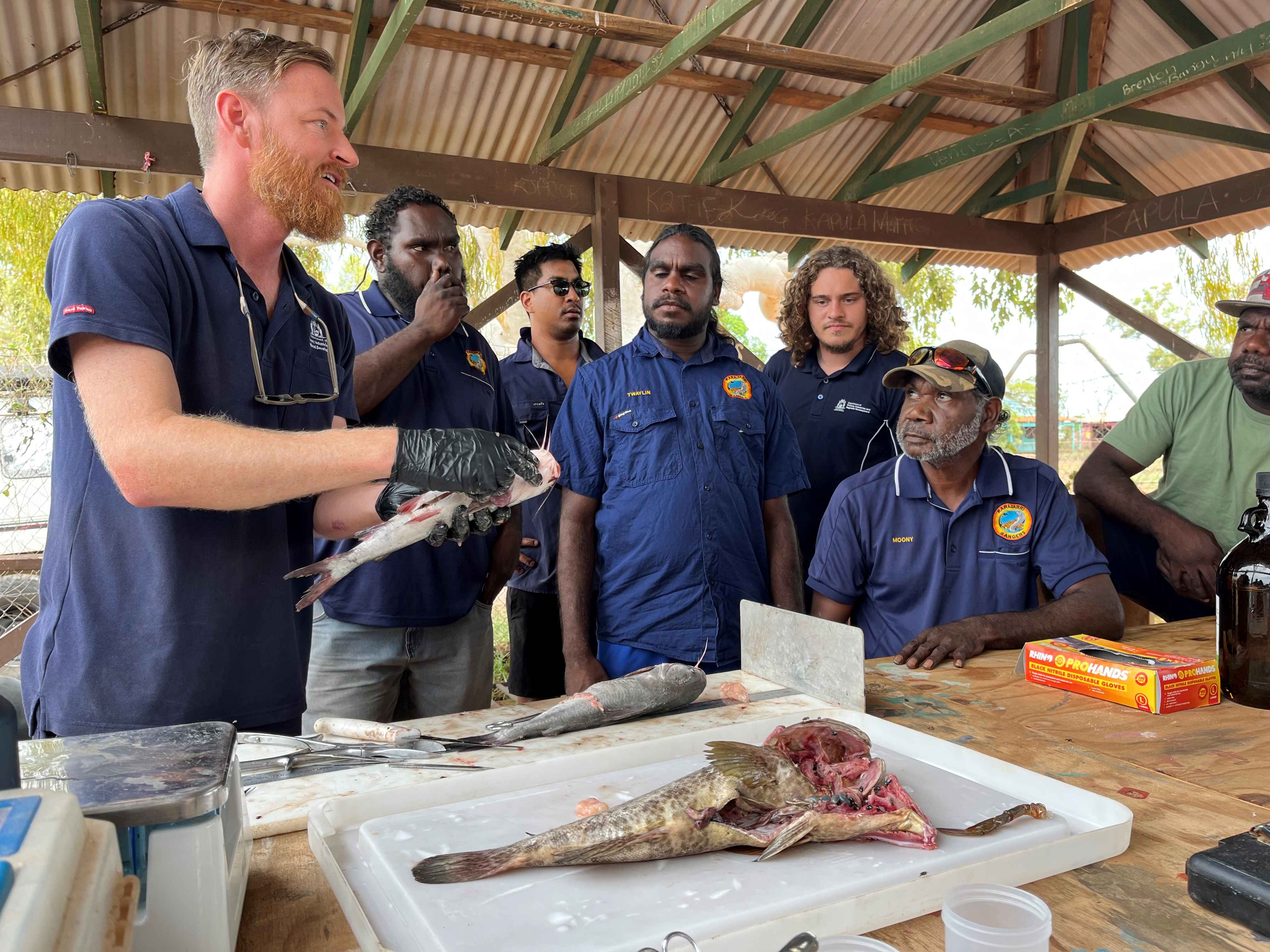
Department of Primary Industries and Regional Development (DPIRD) researchers and other trainers conducted the ranger workshops, to help build their capacity to use scientific data collection methods for field surveys of multiple fisheries species.
More than 90 per cent of the Kimberley is covered under Native Title and Traditional Owners are strongly advocating for business opportunities, including commercial fishing, to deliver improved economic participation and socio-economic prosperity for Aboriginal people.
DPIRD is focused on supporting Aboriginal people to realise economic development potential through commercial fishing rights.
In the training, Fisheries scientists worked with the rangers to explain sampling methods, scientific data collection for mud crabs and finfish, safety requirements and data recording.
DPIRD Senior Research Scientist Danielle Johnston said developing knowledge through on Country training workshops provided opportunities for rangers to undertake their own fisheries research surveys in the future for long-term sustainable management of the Kimberley marine resources and establishment of their future fisheries.
Dr Johnston said a key goal would also be building capacity in Aboriginal groups over time to potentially undertake scientific data collection across multiple fish species.
“DPIRD scientists have been developing the ranger training to highlight the importance of accurate and precise measurement of the fish and an understanding of the relevance of the data they collect,” Dr Johnston said.
“We’ve also been sharing knowledge on having multiple collection sites for mud crabs in a mangrove area to better understand their spatial distribution and make more accurate conclusions about the wider fish or crab populations in an area.
“The training also provided information on mud crab trapping, the variety of fishing gear types for surveying sharks and fish, the survey design, and the classification and identification of marine species.
“This survey has been a big step forward in transfer of knowledge from Aboriginal traditional fishing methods and Western science and policy making.”


